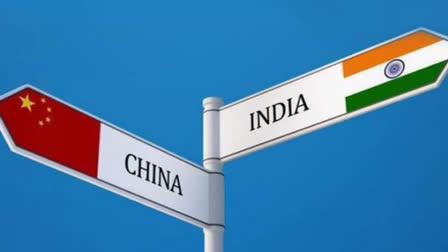New Delhi:China is rapidly increasing its influence in Africa in the defence sector by training military officers in almost all countries of the continent.
According to a study by the United States Institute of Peace (USIP), one way the Communist Party of China seeks to increase the uptake of its norms, values, and institutional practices in Africa is by providing professional education and training opportunities to African military officers. “In addition to promoting China’s governance models, these programmes have graduates in top leadership positions across the continent, including presidencies and numerous top defense roles,” the introduction to the study reads.
“The role of China’s People’s Liberation Army (PLA) in accomplishing Beijing’s political and ideological goals is called ‘military political work’,” study says. “A subset of such work is China’s version of professional military education (PME).”
Each year, thousands of African officers from many different countries attend training programmes in China and participate in dialogues and exchanges with their Chinese counterparts. Many alumni of these programs go on to play leading roles in their countries’ militaries and governments. These include Eritrean President Isaias Afewerki and Zimbabwean President Emmerson Mnangagwa.
While Isaias led Eritrea’s 30-year fight for independence from Ethiopia, which it won in 1993, Mnangagwa came to power through a military coup that ousted long-time ruler Robert Mugabe in November 2017. According to the USIP study, the People’s Liberation Army (PLA) Command College in Nanjing includes among its African alumni 10 defence chiefs, eight defence ministers, and former Presidents Laurent Kabila of the Democratic Republic of the Congo, Joao Bernardo Vieira of Guinea-Bissau, Sam Nujoma of Namibia and Jakaya Kikwete of Tanzania.
“The USIP study is important because not much was known about this (PME). This report gives great detail about it,” Ruchita Beri, Consultant at the Manohar Parrikar Institute of Defence Studies and Analyses (MP-IDSA), told ETV Bharat. Beri, who specialises in political economy and security of Sub-Saharan Africa, India–Africa relations and emerging powers in Africa and the Indian Ocean region, said that Beijing’s engagement with Africa started way back in 2000 when the Forum on China-Africa Cooperation (FOCAC) was set up.
Also read: Qin’s removal underscores Xi’s control in 'authoritarianism of power' producing inefficient outcomes for China: Expert
“Over the last two decades, China’s relations with Africa improved dramatically,” she said. “Initially, the engagement was for providing economic support. But now, China’s presence is felt in all countries of Africa. The natural resources of Africa are important for China.” Beri pointed out that China has supported the liberation struggles of various countries in Africa. Since 2017, China has also been operating a naval base in Djibouti in the Horn of Africa.
India too has huge stakes in Africa. So, how can New Delhi counter Beijing’s PME programme that is attracting so many African military officers? “See, India has been training African military officers since the 1960s under the ITEC (Indian Technical and Economic Cooperation) programme,” Beri said.
Instituted in 1964, ITEC is one of the oldest institutionalized arrangements for international capacity building having trained more than 200,000 officials from over 160 countries in both the civilian and in the defence sector. Beri said that former Nigerian President Muhammadu Buhari, a retired army major general, was trained in India.
India has signed memorandums of understanding (MoUs) with all African nations on the Indian Ocean Rim (IOR). The hosting of two India-Africa Defence Dialogue (IADD) at the defence ministers’ level, on the sidelines of the Defence Expo at Lucknow in 2020 and in Gandhinagar in 2022, also underlines the growing importance of the defence domain in India-Africa engagement.
In 2022, India started the first edition of the Trilateral Maritime Exercise with Tanzania and Mozambique to enhance maritime cooperation in the region. Beri pointed out that, just like China, India also supported the liberation struggles in African countries like Angola and Mozambique. “India’s support for South Africa’s anti-apartheid movement is well known,” she said. “We have civilizational ties with Africa.”
Beri reminded that India had contributed generously to the AFRICA (Action for Resisting Invasion, Colonialism and Apartheid) Fund that was started in 1980. When Prime Minister Narendra Modi addressed the Ugandan Parliament in July 2018, he outlined 10 guideline principles for India-Africa engagement. These guidelines reflect a change in India’s terms of engagement with Africa.
“When it comes to defence engagement, you should not also forget India’s participation in the UN peacekeeping forces in Africa,” Beri said. “In the last nine years, bilateral engagements with Africa increased tremendously. India has also been providing humanitarian aid to African countries struck by natural disasters.”
Also read: India will continue to resist China's BRI project alone or with partners, says Prof Harsh Pant
